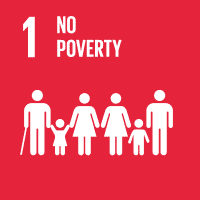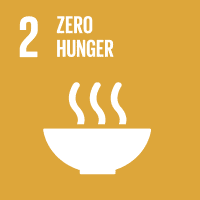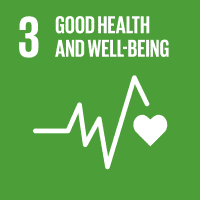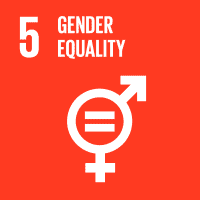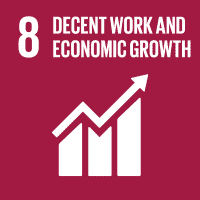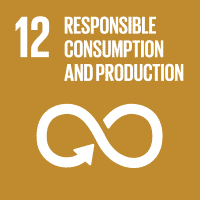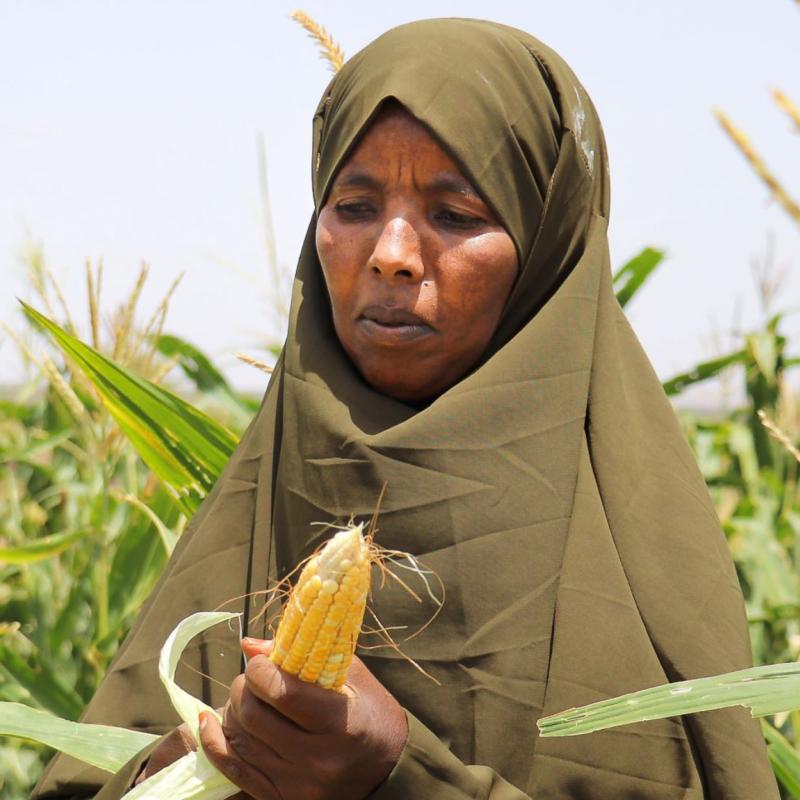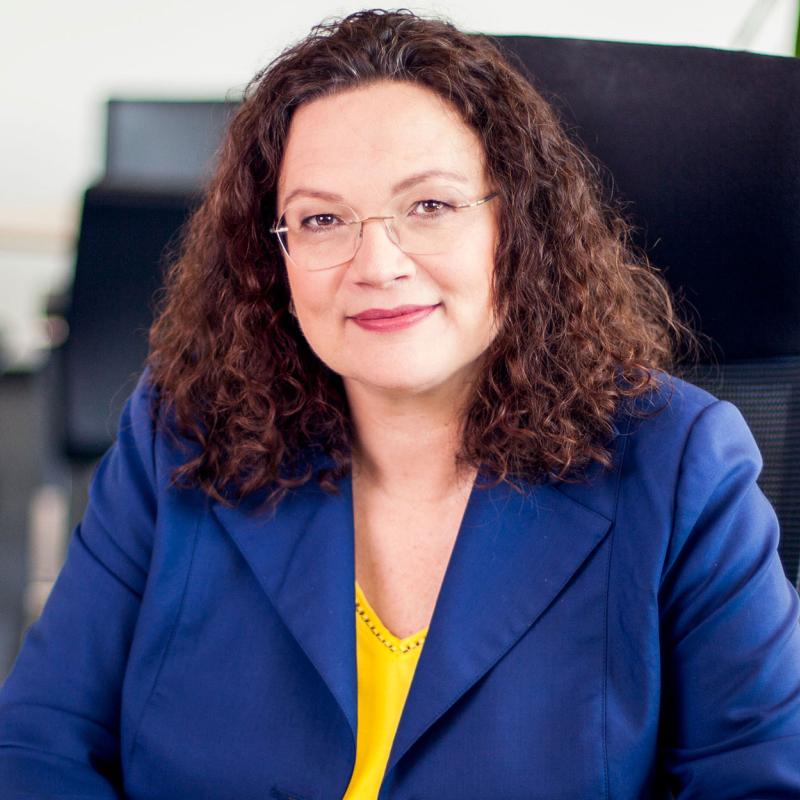Natural disasters, the impacts of the COVID-19 pandemic, social instability – the Somaliland region is facing multiple crises at the same time. Improving Disaster Risk Management and Food Security to Strengthen Resilience in Somaliland, a transitional development assistance project implemented on behalf of the German Federal Ministry for Economic Cooperation and Development (BMZ), is addressing them. It is also working to increase economic, political and social participation for women and young people.
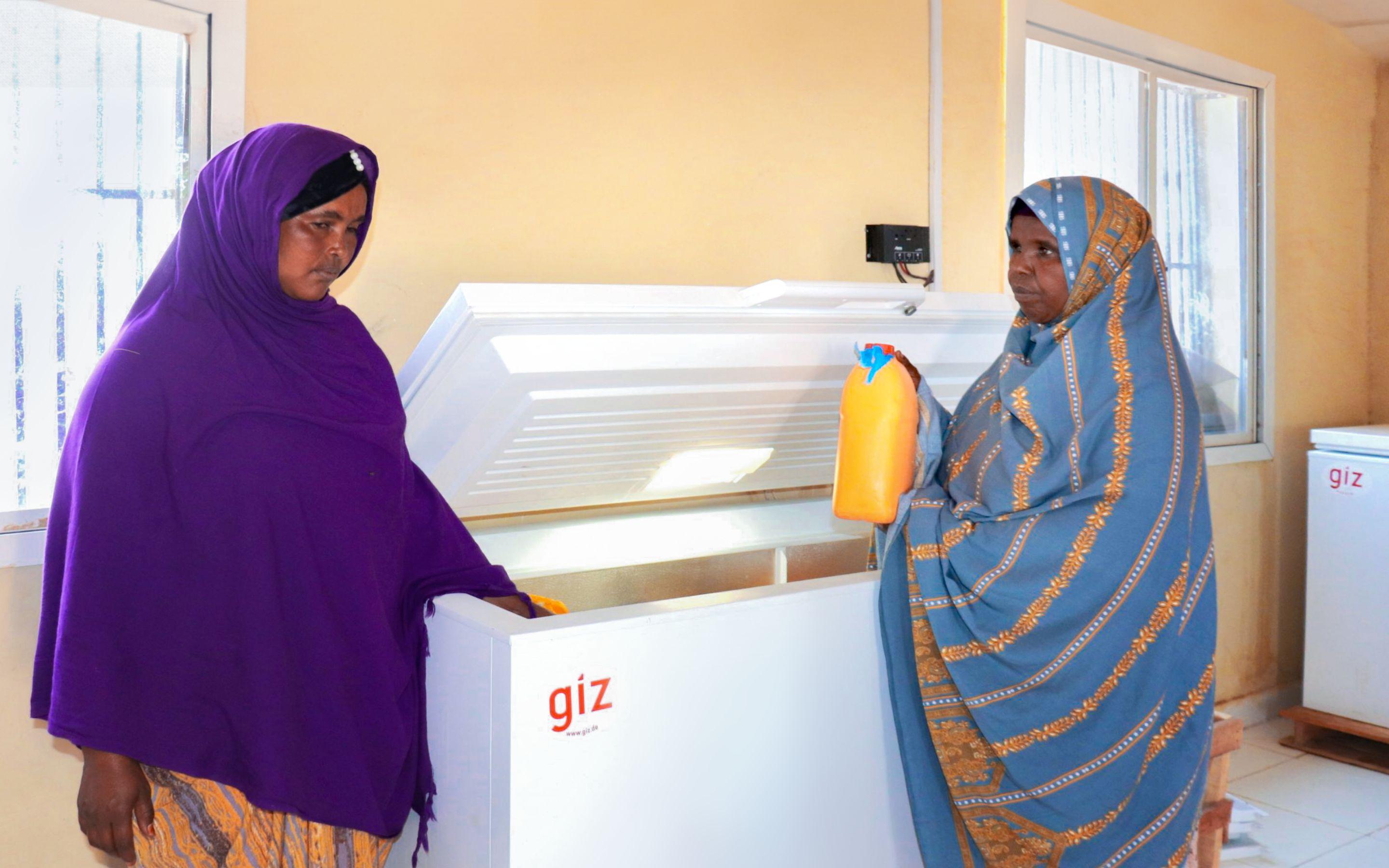 Huda Hassan
Huda Hassan
The wonder of refrigeration
The amazing story of a successful dairywoman, helpful cooling and an enthusiastic community. Out and about in the Somaliland region.
Amid stifling heat, Ifrah Mohamoud carefully raises the hinged lid of a white chest. Packed closely together inside are yellow containers, each sealed with blue lids and labelled with the names of different dairywomen. Mohamoud is one of them. A waft of cool air escapes as she shows off her village’s ‘cooling hub’ – a room with several solar-powered chest refrigerators. ‘These have changed my life,’ she says.
The village where the 50-year-old lives is Karasharka in Somaliland. This region in the north-west of Somalia, to which it officially belongs, is seeking to gain independence. Living conditions there are tough. The security situation is fragile, and higher food prices following the Russian invasion of Ukraine have recently amplified its difficulties with food supplies. To add to that, climate change is having a significant impact on this part of the Horn of Africa, which is already very hot and dry.
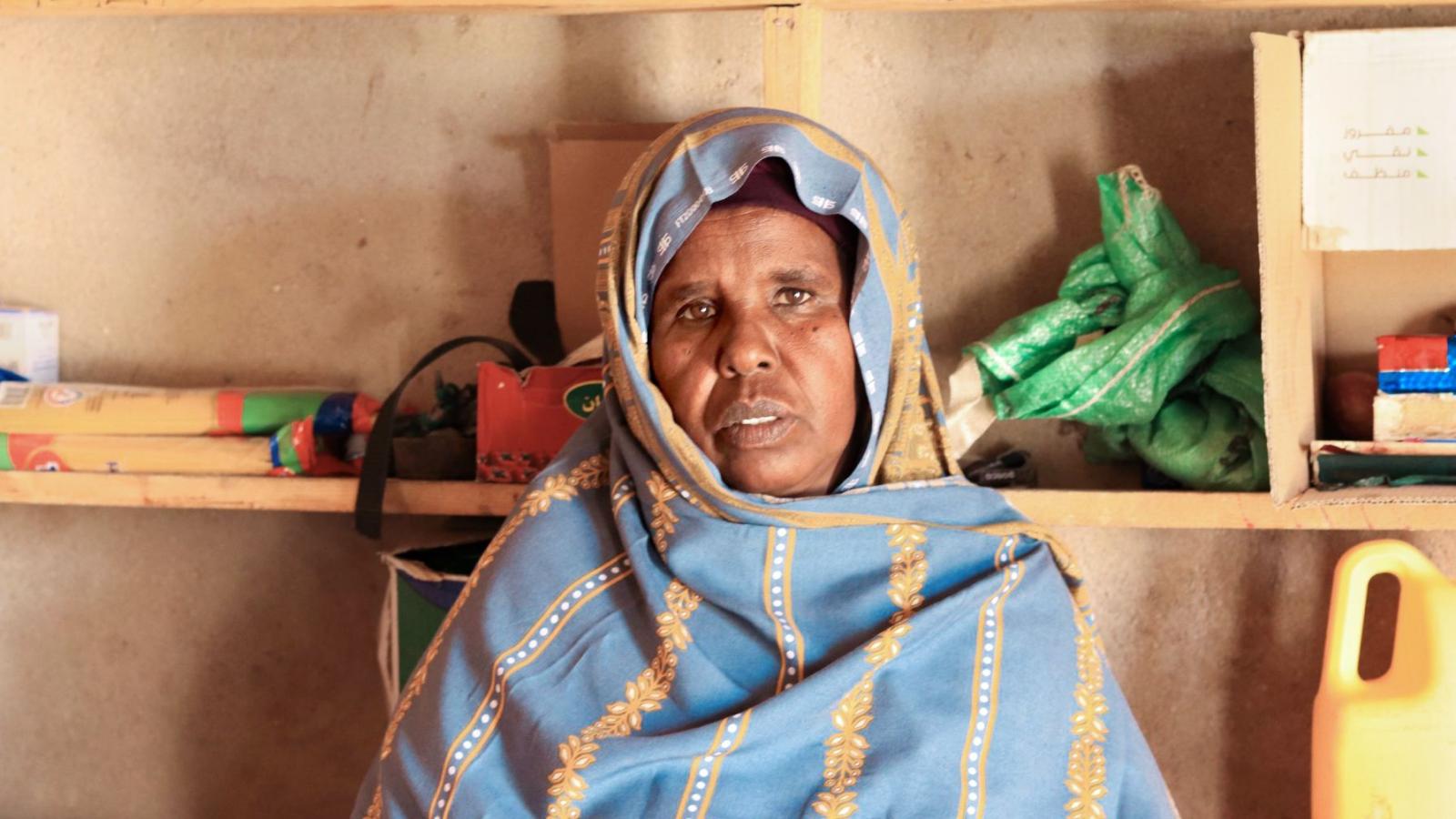 Huda Hassan
Huda Hassan
Ifrah Mohamoud is a successful dairywoman.
Milk pays for medical studies
Food is precious, and difficult to store. This is why the refrigerators are so important for Mohamoud and the success of her small business. She now earns enough from selling milk to be able to send her eight children to school, and can even pay for her oldest son to study medicine.
Mohamoud herself has never sat in a classroom. ‘There was no school in the village where I grew up,’ she says. But she has not let her lack of formal education hold her back. ‘I learned arithmetic and a little writing in Somali in my everyday life,’ the small business owner explains. And her business sense is plainly something she was born with.
It is not left to her alone to generate the family’s income as her husband works in the business too. Ifrah Mohamoud used the first profits she earned from selling milk to buy a minibus, and employs her husband as a driver. Every morning he travels round the surrounding villages to collect the milk.
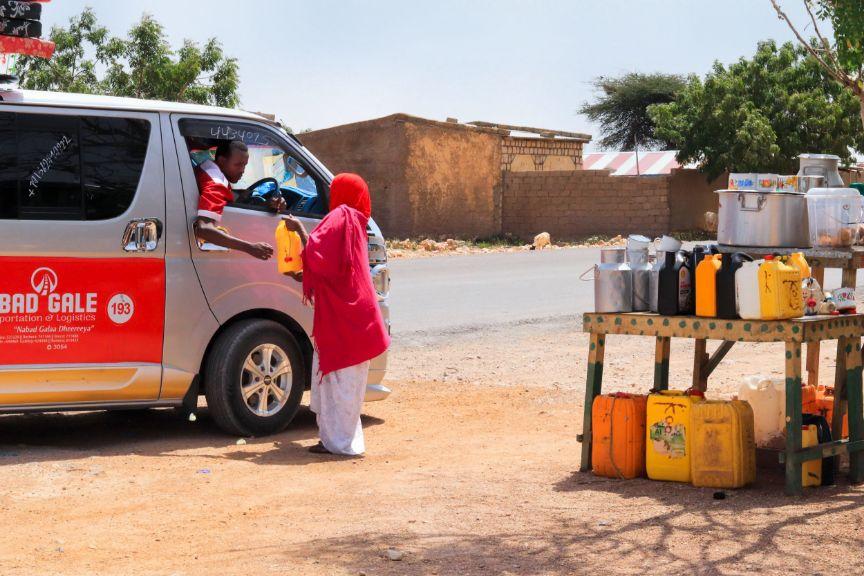 Huda Hassan
Huda Hassan
‘Out of every 100 litres of milk I had before, half was spoiled. Now, on average, it’s only a tenth.’
Food losses down by 40 per cent
As a milk trader, Mohamoud used to have to wait for the farmers to bring their product to her themselves. It was impossible to plan for this, and often the milk was no longer usable. Ever since her husband has been collecting the milk reliably and quickly, and with everything now being stored in the refrigerators, her income has risen sharply, Mohamoud proudly declares. She says that she is currently making a profit of USD 250 per month. That is a good income in Somaliland. Teachers earn USD 150 per month, and police officers USD 140. ‘Out of every 100 litres of milk I had before, half was spoiled,’ she says. ‘Now, on average, it’s only a tenth.’
Ifrah and her colleagues owe the presence of the refrigerators in Karasharka to a project implemented by the Deutsche Gesellschaft für Internationale Zusammenarbeit (GIZ) GmbH on behalf of the German Federal Ministry for Economic Cooperation and Development. GIZ has financed a total of four ‘cooling hubs’ – rooms with solar-powered chest refrigerators – in Somaliland. It has also helped set up four ‘milk markets’: halls on marketplaces where several women can keep their milk cool and have a fixed location to sell it from. GIZ and its partners are working in three regions, Maroodi Jeex, Saaxil and Togdheer, to improve food security and resilience for around 68,000 people.
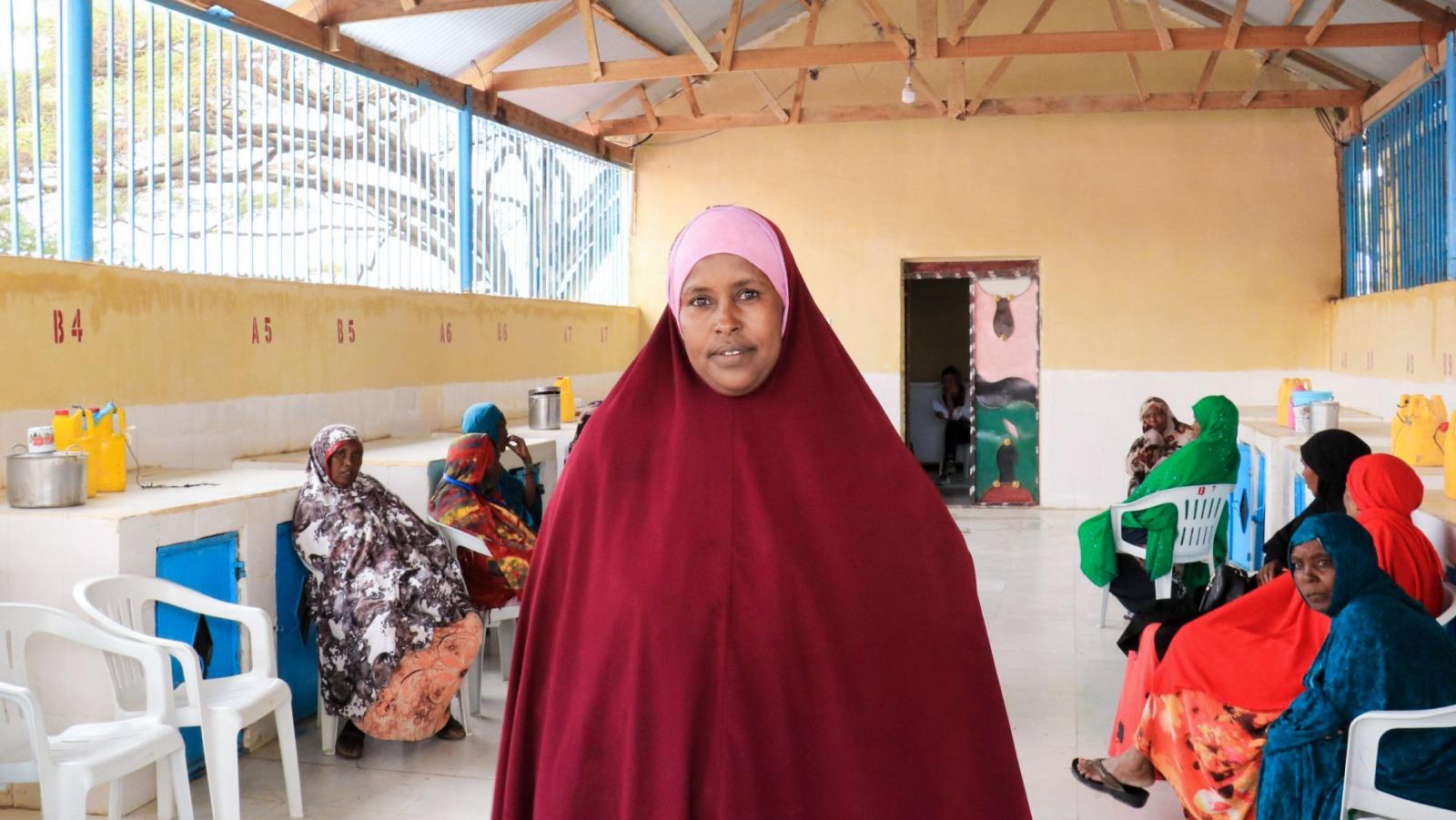 Huda Hassan
Huda Hassan
Dairywomen in one of four milk markets in Somaliland that were set up with GIZ support.
The part that refrigerators can play in this is demonstrated in Karasharka. Here, a group of 19 women and one man are gaining directly from the cooling hubs, but essentially they benefit all 250 households in the village. This is because the village development committee collects money for joint projects from all the residents. As individuals become wealthier, the community is better off as a result. The committee has now gathered enough to start building a health centre.
According to Ali Hirsi, who heads the committee, this would have been impossible without the refrigerators: ‘The milk traders contributed most of the money for it.’ The shell of the health centre building is already up, and GIZ will finance its completion. ‘We think this initiative that the village launched is admirable and want to support it,’ says Carola von Morstein. Until September 2023, she was responsible for coordinating GIZ projects in Somaliland, and knows Karasharka very well. The government has already agreed to cover the cost of the health care staff’s salaries once the building is finished.
There are even more people who benefit indirectly, namely those who buy the milk. Many of them are passing through the village, as Karasharka lies on an important road connecting the interior of the region with the port city of Berbera. Since Karasharka now has a reputation as a ‘milk village’, many travellers plan a brief stop there to pick some up for themselves. Camel milk, goat milk and cow milk are all available.
Abdirashid Ali has just pulled up in his truck outside the cooling hub. He plies this transit route daily, carrying goods. Every day he picks up 20 milk containers in Karasharka, each one holding 28 litres. He sells them in Berbera on commission, a handy source of extra income for him. Ali himself likes camel milk best, praising it as being ‘particularly nutritious’. And then he’s off on his way again. With the milk that can change lives here.
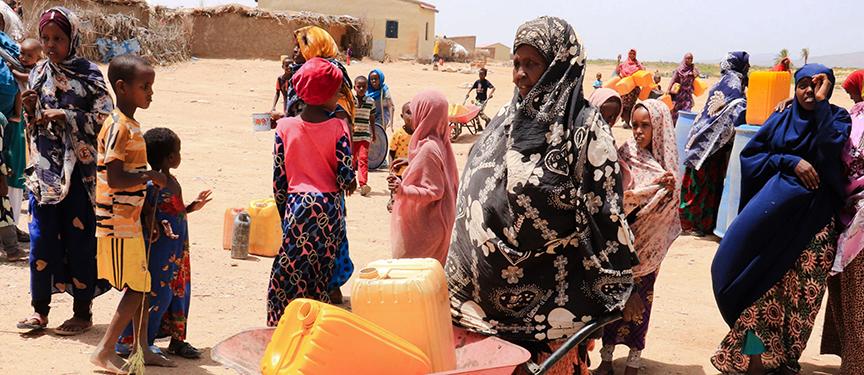 Huda Hassan
Huda Hassan
‘Working hand in hand’
Somaliland in the Horn of Africa is a very fragile area. Project Manager Carola von Morstein explains why an integrated approach is the only way to tackle the challenges here. more
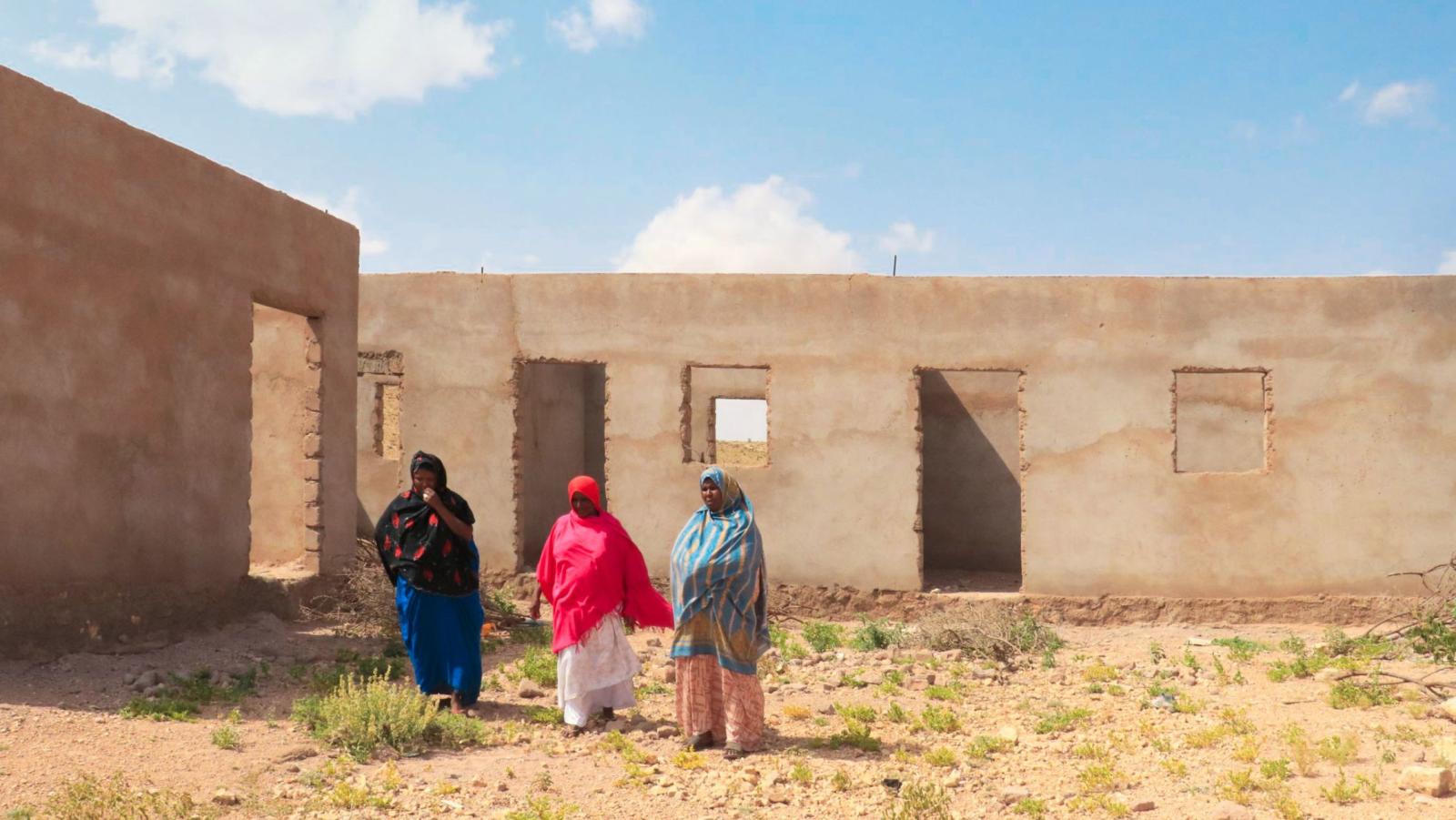 Huda Hassan
Huda Hassan
Ifrah Mohamoud (right) with other dairy traders in front of the construction of the health centre in Karasharka, which they helped to finance.
